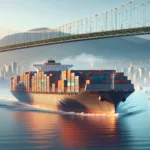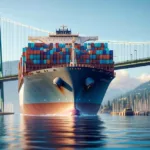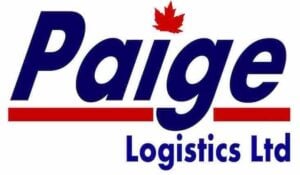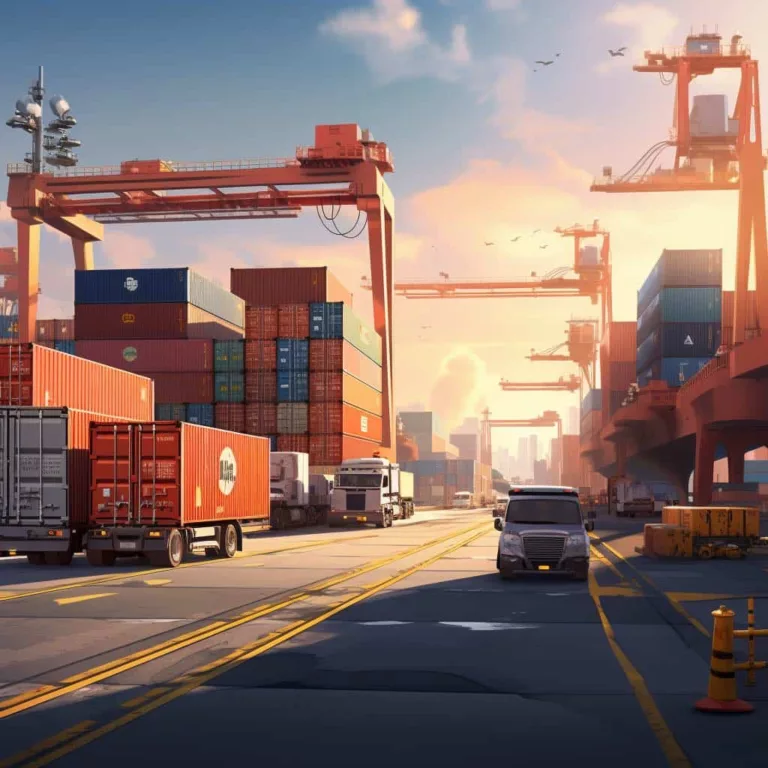Cost Efficiencies of Coordinating International Freight Shipping via
Awarded #1 in Shipping
click on badge
FCA Incoterms
Understanding FCA Incoterms:
A Comprehensive Guide for Global Trade
In the complex world of global trade, understanding shipping terms is crucial for both buyers and sellers.
The Free Carrier (FCA) Incoterm is a pivotal agreement in international logistics, balancing responsibilities between the two parties involved in a transaction.
This guide delves into the nuances of FCA, offering a detailed and authoritative perspective to ensure informed decision-making in your shipping endeavors.
Seller and Buyer Responsibilities Under FCA
The Seller’s Role – The seller’s responsibilities under FCA are multifaceted. They encompass preparing the cargo for export, which includes compliant packaging, bearing loading charges, and ensuring delivery to the specified port or place.
Crucially, the seller must handle all export duties, taxes, and customs clearance, a task that demands thorough knowledge of export regulations.
The Buyer’s Role – Once the cargo reaches the named place, the buyer assumes responsibility. This transition includes handling origin terminal charges, loading on carriage, and managing carriage charges. While insurance is optional, it falls under the buyer’s purview.
Upon arrival at the destination, the buyer is responsible for terminal charges, delivery to the final destination, unloading, and managing import duties and customs clearance.
The Best Worldwide shipping Management
over 200 years of Global experience
What does FCA stand for in shipping terms?
FCA stands for Free Carrier. It is an Incoterm used in international shipping agreements where the seller delivers the goods to a specified location, and the buyer assumes responsibility from that point onwards.
What does the buyer need to do in an FCA agreement?
The buyer’s responsibilities start when the cargo clears customs at the named place. They include handling origin terminal charges, loading on carriage, carriage charges, optional insurance, destination terminal charges, delivery to the final destination, unloading, and import duties and customs clearance.
What are the key responsibilities of the seller under FCA?
The buyer’s responsibilities start when the cargo clears customs at the named place. They include handling origin terminal charges, loading on carriage, carriage charges, optional insurance, destination terminal charges, delivery to the final destination, unloading, and import duties and customs clearance.
Is FCA better for the buyer or the seller?
FCA can be advantageous for both parties but offers more control to the buyer over the transportation process after the cargo has been exported. It allows buyers, especially those experienced in logistics, to potentially reduce costs and optimize shipping.
When is it most beneficial to use FCA?
FCA is most beneficial when the cargo is containerized, the buyer has a good understanding of logistics in the seller’s country, and both parties are familiar with and prefer FCA over other Incoterms.
What are the challenges of using FCA?
The main challenges include the buyer’s increased responsibility for the cargo once it reaches the named place, potential complexities if issues arise during shipping, and the need for the buyer to be knowledgeable about logistics processes.
How does FCA compare to FOB in terms of responsibility and risk?
In FCA, the seller’s responsibility ends when the goods are delivered to the named place. In FOB, the seller’s responsibility includes loading the goods onto the vessel. The risk transfer point in FCA is at the named place, whereas in FOB, it is when the goods are on board the vessel.
Is FCA a good choice for importing from China?
FCA might not be the most ideal choice for importing from China due to the prevalent use of FOB in the region. FOB is often more efficient for Chinese exporters due to familiarity and streamlined processes.
Does FCA include insurance coverage?
Insurance is not a mandatory part of FCA. It is the buyer’s responsibility to decide if they want to obtain an insurance policy for the cargo during transit.
Can FCA be used for all modes of transport?
Yes, FCA is versatile and can be used for any form of transport, including air freight, sea freight, road freight, and rail freight.
Advantages and Challenges for Buyers
Advantages – FCA offers buyers significant control over the transportation process post-export.
This control can translate into cost savings and logistical efficiencies, particularly for those experienced in containerized shipping and with reliable logistics partners.
Challenges – The buyer’s increased responsibility under FCA can lead to complexities, especially if issues arise during shipping.
The intricacies of FCA make it less common than other Incoterms like FOB (Free On Board), particularly in ocean shipping.
Strategic Use of FCA in International Trade
FCA is most advantageous when the cargo is containerized, and the buyer has a robust understanding of logistics in the seller’s country.
It’s also beneficial when both parties are familiar with and prefer FCA over other Incoterms. Direct transport of cargo to the export terminal further streamlines the process under FCA.
FCA for Importing from China: A Specific Consideration
While FCA can be effective, it’s less ideal for importing from China due to the prevalent use of FOB in the region. Familiarity with FOB among Chinese exporters often leads to more efficient transactions.
Making an Informed Choice
Understanding the intricacies of FCA is vital for anyone involved in international trade. This guide, rooted in expertise and detailed analysis, aims to empower you with the knowledge to make informed decisions, ensuring your shipping strategies align with your business objectives.
Stuck for finding the best freight forwarder China to Canada? Shipping with Paige Logistics! Offering extended cross border shipping Canada to California.
2023 Global Leader In Shipping
Freight Carriers Association of a Canada
Ocean Freight Services China to Canada
International Fulfillment and Logistics

Author & Chief Executive Officer at Paige Logistics Ltd. → Experienced Operations Manager with a demonstrated history of working in the Transportation, Trucking and the Railroad Industry.
Related Posts

Freight Brokerage Unlocking the Potential of Freight Brokerage Solutions for Your Business Click For Best Price Awarded #1 in Shipping click on badge Deliveries +

Freight & Shipping Insurance The Comprehensive Guide to Shipping Insurance for Freight in International Trade Click For Best Price Awarded #1 in Shipping click on

Understanding Specialized Transport Click For Best Price From Giant Machines to Hazardous Materials: The Wild Side of Specialized Transportation! Awarded #1 in Shipping click on

Seasonal Load Restrictions How to Outsmart Seasonal Load Limits and Save Big! Click For Best Price Awarded #1 in Shipping click on badge + 0

Mastering the Intricacies of CFR Incoterms A Comprehensive Guide Click for Best price CLICK ON BADGE Deliveries + 0 Happy Clients 0 manufacturers 0 Awards

CIF Incoterms The Comprehensive Guide to CIF (Cost, Insurance & Freight) in International Trade Click For Best Price Awarded #1 in Shipping click on badge
Overview And Experience
Know That Your Cargo is in Good Hands.
Looking For New Partners?
At Paige Logistics we have proven experience in logistics as integral transport providers. We work hard to ensure that your freight safely travels to the destination fully guaranteed and at the best freight rate.
Put your cargo in our hands and we’ll deliver it by rail, truck, sea in the shortest possible time.


